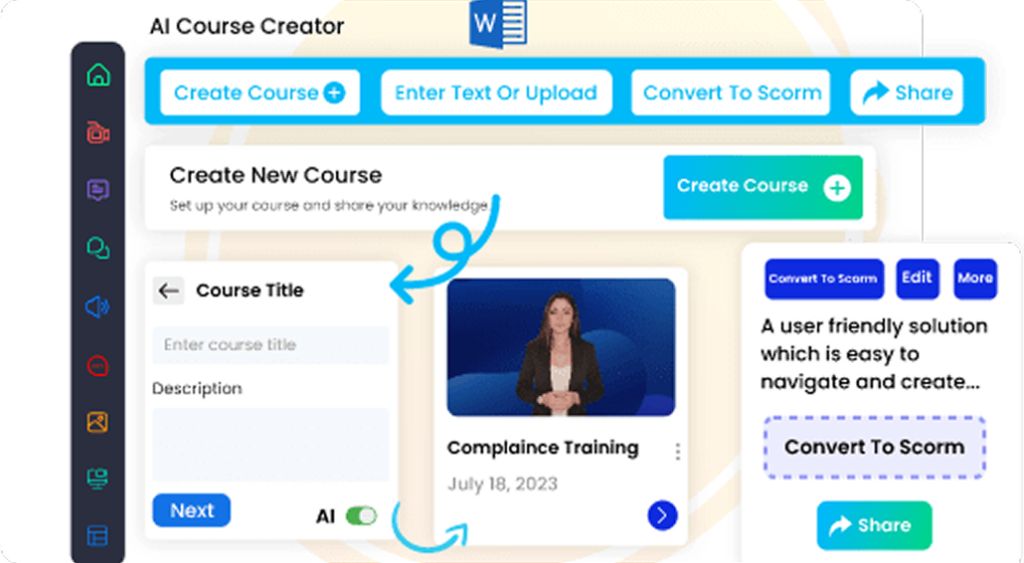Coaching is a fundamental skill for managers who aim to build high-performing teams and drive organizational success. Effective coaching skills are essential for fostering growth, improving performance, and creating a positive workplace culture. In this blog post, we will explore 10 essential coaching skills for managers training that every manager should develop to enhance their leadership abilities and support their team’s development.
Why Coaching Skills Are Crucial for Managers
In today’s fast-paced business environment, managers are not just taskmasters but mentors and guides for their team members. Coaching skills help managers identify individual strengths, provide constructive feedback, and empower employees to unlock their full potential. By focusing on coaching skills training for managers, organizations can create a culture of continuous improvement, collaboration, and personal growth.
Managers who master coaching skills can:
- Build trust and rapport with their team
- Improve employee performance and engagement
- Foster a culture of innovation and accountability
- Increase retention and reduce turnover
To explore structured programs that help managers develop these skills, check out our course catalog for specialized leadership and coaching training.
10 Coaching Skills for Managers: Tips for Improvement
1. Active Listening
One of the most important coaching skills is the ability to listen actively. Active listening involves giving your full attention to the speaker, understanding their message, and responding thoughtfully. Managers who practice active listening can build stronger relationships with their team and gain valuable insights into their needs and concerns.
To improve active listening:
- Avoid interrupting when someone is speaking
- Ask clarifying questions to ensure understanding
- Summarize what the employee has said to confirm comprehension
2. Providing Constructive Feedback
Effective feedback is essential for growth. Managers need to provide constructive feedback that helps employees understand their strengths and areas for improvement. Coaching skills training focuses on providing feedback that is specific, actionable, and delivered in a positive manner.
To provide effective feedback:
- Be specific and focus on observable behaviors
- Offer suggestions for improvement, not just criticism
- Ensure feedback is timely and relevant
3. Setting Clear Goals
Coaching involves helping employees set clear and achievable goals. Managers who engage in coaching skills training understand how to guide employees in defining SMART (Specific, Measurable, Achievable, Relevant, Time-bound) goals that align with both individual aspirations and organizational objectives.
To set clear goals:
- Collaborate with employees to define their goals
- Ensure goals are aligned with company objectives
- Review progress regularly and adjust goals as needed
4. Empathy and Emotional Intelligence
Empathy is crucial in coaching, as it allows managers to understand their team members’ emotions and perspectives. Emotional intelligence (EQ) helps managers navigate sensitive situations, offer support, and connect with employees on a deeper level. It’s a vital skill that enhances communication and conflict resolution.
To improve empathy and emotional intelligence:
- Be aware of your own emotions and reactions
- Show genuine interest in your employees’ well-being
- Respond appropriately to emotions in the workplace
Discover how our courses can align with your training goals and drive real results.
Learning Built Around Your Goals.
Schedule A Demo5. Asking Powerful Questions
Asking the right questions can unlock solutions and insights that employees might not have considered. Coaching skills for managers training emphasizes the importance of asking open-ended questions that encourage employees to think critically and find solutions on their own.
To ask powerful questions:
- Focus on “what” and “how” questions, not “why” questions
- Encourage reflection and problem-solving
- Let the employee come up with solutions rather than giving them the answers
6. Providing Motivation and Support
Managers must motivate their team members to achieve their best. Motivating employees goes beyond offering rewards—it’s about creating an environment where employees feel empowered to grow. Training in coaching skills teaches managers to recognize what drives their employees and how to provide the support they need.
To motivate and support employees:
- Recognize and celebrate achievements
- Offer resources and training opportunities
- Encourage a growth mindset
7. Delegation
Effective delegation is a key coaching skill for managers. By delegating tasks appropriately, managers help their employees grow, learn new skills, and take ownership of projects. Coaching skills training teaches managers how to delegate tasks based on employees’ strengths and developmental goals.
To improve delegation:
- Assign tasks that align with employees’ skills and interests
- Provide clear instructions and expectations
- Offer support and feedback throughout the process
8. Accountability
Coaching involves holding employees accountable for their actions and commitments. Managers who are skilled in accountability can ensure that their team members stay on track and deliver results. It’s important to strike the right balance between providing support and enforcing responsibility.
To improve accountability:
- Set clear expectations and deadlines
- Follow up regularly and provide feedback
- Encourage self-reflection and personal responsibility
9. Flexibility and Adaptability
Managers must be flexible and adaptable to changing circumstances. Effective coaching requires adjusting strategies based on the needs of the team or the situation. Managers who invest in coaching skills training understand that flexibility is key to fostering growth and development within their teams.
To be more flexible and adaptable:
- Stay open to new ideas and approaches
- Adjust coaching methods to suit individual team members
- Encourage innovation and experimentation
10. Continuous Learning
Great coaches are always learning. Managers who are committed to continuous learning are better equipped to support their teams and adapt to evolving business needs. Coaching skills for managers training emphasizes the importance of staying updated with new coaching techniques, leadership trends, and industry best practices.
To foster continuous learning:
- Attend workshops, webinars, and training programs
- Read books and articles on leadership and coaching
- Seek feedback and actively work on self-improvement
How CogniSpark AI Elevates Coaching Skills for Managers
Developing strong coaching skills is essential for today’s managers, and CogniSpark AI makes it easier than ever to cultivate these capabilities with precision and impact. From active listening to constructive feedback and goal setting, CogniSpark’s AI-driven learning experience helps managers practice real-world coaching conversations through interactive simulations and role-play scenarios.
With an integrated AI Tutor, managers receive instant feedback on tone, empathy, and clarity—refining their ability to guide and support team members effectively. Whether it’s learning to ask better questions or fostering a growth mindset, CogniSpark provides personalized learning paths aligned with individual improvement areas.
Its in-built authoring tool also enables HR teams to tailor coaching modules to reflect company culture, while LMS compatibility ensures smooth rollout and tracking of manager development at scale.
With CogniSpark AI, organizations can build a coaching culture where managers don’t just manage—they inspire, empower, and elevate their teams to perform at their best.
Improve Your Coaching Skills with Expert Training
Are you ready to enhance your coaching skills and become a better leader? Join our coaching skills training for managers program and start transforming your approach to leadership today.
Access 100+ fully editable, SCORM-compatible courses featuring an integrated AI Tutor and an in-built authoring tool. Seamlessly compatible with any LMS, these courses are designed to elevate your training programs.
Explore Our eLearning Course Catalog






















